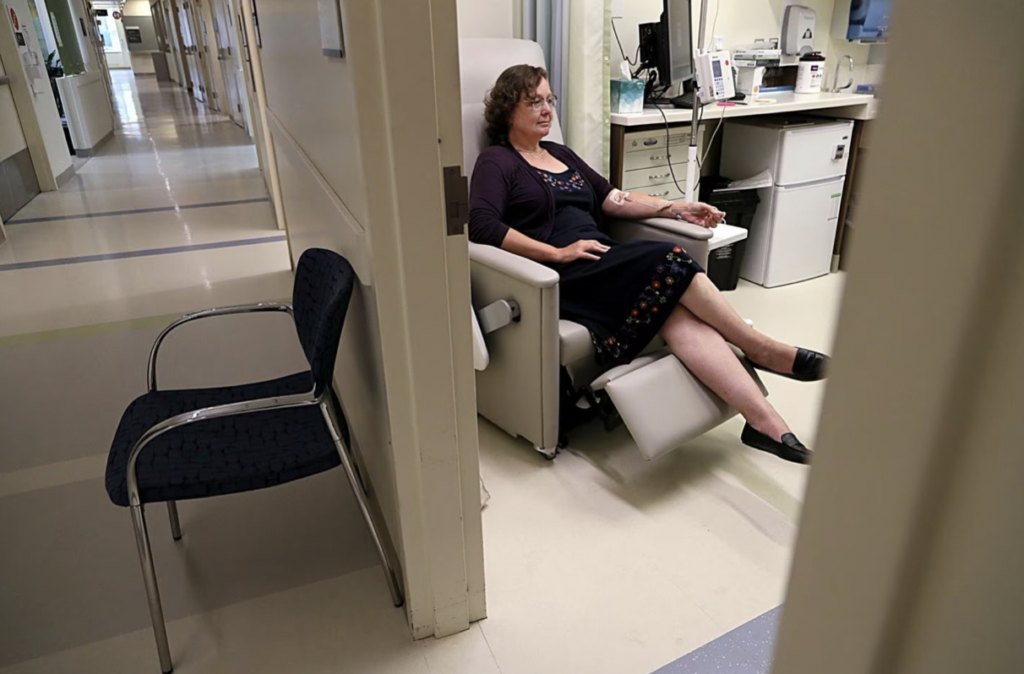People with Down syndrome helped scientists pave the way for Alzheimer’s drugs but are now left out of the treatment.
By Hampus Hillerstrom and Jo Ann Simons
The clinical trials for new Alzheimer’s disease treatment drugs — which researchers believe will slow the course of the disease over time — offer hope to thousands of people who have the disease.
Unfortunately, the trials failed to include the very population that made progress on Alzheimer’s treatments possible — those with Down syndrome.
In the 1990s, the Down syndrome community helped scientists understand how genetics play a role in the development of Alzheimer’s disease, and those discoveries launched the groundbreaking path of anti-amyloid drug research that led to the development of the current drugs. At the beginning of this discovery path, people with Down syndrome and Alzheimer’s disease were included as research partners to the neurotypical population with Alzheimer’s disease. Since then, the Down syndrome community has been left behind.
For most people with Down syndrome, their golden years are eclipsed by the dark shadow of Alzheimer’s disease. Dementia leads to 70 percent of deaths among adults with Down syndrome, and the debilitating dementia that defines Alzheimer’s begins 20 to 30 years earlier, typically in their early 50s. A staggering 90 percent of people with Down syndrome will have an Alzheimer’s diagnosis in their lifetime.
Despite this devastating prevalence of early-onset Alzheimer’s, no one with Down syndrome was included in the 30 clinical trials conducted over the past 13 years that led to the development of three promising anti-amyloid drugs — Biogen’s Aduhelm, Eisai’s Leqembi, and Eli Lilly’s donanemab — companies and researchers with significant ties to Massachusetts. In fact, the Down syndrome population was specifically excluded from the trials because the before and after assessments were not adapted to assess people with intellectual disabilities. It’s our hope they will be included going forward so that this population can benefit from the treatments.
The world is witnessing the first generation of people with Down syndrome to reach retirement age. No longer relegated to early death because of heart defects and no longer condemned to suffer in archaic institutions, people with Down syndrome and their parents have advocated for medical advancements that have allowed tens of thousands of people with Down syndrome to now live into their 60s.
Our two families have different daily perspectives (one’s son is 9 years old, the other’s is in his 40s) but the unifying truth is: Even though the science to change our futures is here, Alzheimer’s disease is statistically guaranteed to be part of our children’s lives unless immediate actions are taken.
Neurologists believe the new drugs will slow the development of plaques in the brains of people with Down syndrome, but anti-amyloid drugs can’t be prescribed to anyone with Down syndrome because researchers don’t know if the drugs are safe for this population.
The pharmaceutical industry, federal regulators, and state and private insurers must take immediate actions that will prevent early death from Alzheimer’s and create a path to drug access (and, subsequently, justice) for our community.
The pharmaceutical industry must launch key safety trials in the Down syndrome population. State, federal, and private insurers should immediately adopt the proposed Down syndrome- focused prior authorization and equivalency criteria and clear the procedural barriers currently preventing doctors from prescribing new drugs to people with Down syndrome. And regulators should issue conclusive language to resolve any current ambiguity around eligibility for people with Down syndrome and Alzheimer’s disease to facilitate participation in safety trials and, if warranted, for future prescriptions of this class of Alzheimer’s drugs. In addition, those agencies should make adaptations to prevent the proposed registry of users from creating additional barriers for our community to overcome.
With each day that passes, more adults with Down syndrome cross the threshold in disease progression where the new Alzheimer’s therapies will not impact their prognosis. All people with
Alzheimer’s disease should have equal access to the promise of the brighter future that anti- amyloid drugs might provide.
Hampus Hillerstrom is president and CEO of the LuMind IDSC Down Syndrome Foundation. Jo Ann Simons is the president and CEO of the Northeast Arc, past president of the National Down Syndrome Congress, and past chair of the National Down Syndrome Society.
